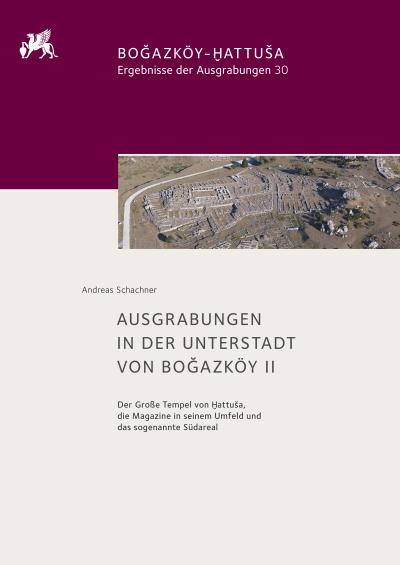Online ISSN
2570-1533Print ISSN
2570-141X
The so-called Great Temple and the monumental buildings in its vicinity are the most emblematic structures in the Hittite capital Ḫattuša. It is one of the best-preserved ensembles of monumental Hittite architecture, which stands par excellence for Hittite culture in Central Anatolia and is today visited by all visitors to the UNESCO World Heritage Site. The edifices were investigated in several stages between 1907 and 1969 so that the history of research into this extensive Bronze Age settlement is reflected in an exemplary way in the changing development of the excavations and their reappraisal. The differentiated presentation of all buildings creates, for the first time, a sound basis for including these buildings in modern research questions of archaeology as well as cultural and architectural history. The work results not only in changes in the evaluation of the spatial structures and their functions but especially in the solution to the question of when this ensemble was founded. The construction of these buildings already in the formative phase of the Hittite empire can be associated with politically and socially indicated religious developments and with the urban transformation of Ḫattuša from an Anatolian city to the religious and political center of an ancient Near Eastern empire.






No comments:
Post a Comment